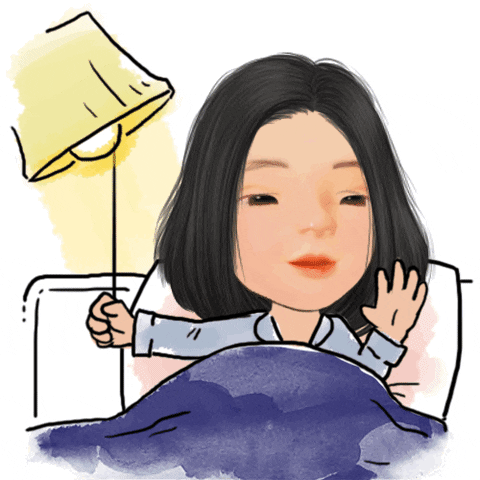Hey there, friend. I want to tell you a secret that can change your life: sleep for health is the ultimate superpower. I know, I know - it sounds too good to be true.
But trust me, as someone who's experienced the incredible benefits of prioritizing sleep, I can confidently say that it's the real deal. And May is "Better Sleep Month" -- so what better time to make sure you're optimizing yours?
When you give your body the rest it craves, magic happens. Your brain fog clears, your energy skyrockets, and you feel like you can conquer the world!
The Importance of Sleep for Health
Sleep is not a luxury, it's a necessity. Sleep for health plays a critical role in brain function and systemic physiology, including metabolism, appetite regulation, and the functioning of immune, hormonal, and cardiovascular systems.
How Sleep Affects Your Brain, Heart, and Immune System
When you sleep, your body is working to support healthy brain function and maintain your physical health. Sleep helps your brain process new information and form memories.
But sleep doesn't just benefit your brain. It's vital to the rest of the body too. When people don't get enough sleep, their health risks rise.
Symptoms of depression, seizures, high blood pressure and migraines worsen. Immunity is compromised, increasing the likelihood of illness and infection.
The Dangers of Sleep Deprivation
Despite the importance of sleep, up to 70 million people in the US and 45 million people in Europe have a chronic sleep disorder.
That's a lot of sleep-deprived people. A third of US adults report that they usually get less than the recommended amount of sleep.
Not getting enough sleep is linked with increased risk of many chronic conditions—such as type 2 diabetes, heart conditions, obesity, and depression.

Developing Healthy Sleep Habits
So how can you make sure you're getting the quality sleep you need? The key is to develop healthy sleep habits.
Some tips for adequate sleep include sticking to a consistent sleep schedule, creating a relaxing bedtime routine, and optimizing your bedroom environment for comfort and tranquility.
Small changes can make a big difference in the sleep quality and quantity of your sleep. Sleep, diet, and exercise work together for better health.
How Sleep Impacts Your Physical Performance and Weight
Did you know that sleep also plays a crucial role in physical performance and weight management? Athletes push their bodies to the limit, so it's no surprise that sleep is especially important for them.
Proper sleep helps improve reaction time, accuracy, and speed. Sleep for health also supports muscle recovery and reduces the risk of injury.
Sleep deprivation can lead to decreased performance, impaired decision-making, and a higher likelihood of accidents or mistakes.
How Sleep Deprivation Can Lead to Weight Gain
People get food cravings when they haven't slept well, and they often crave carb-heavy comfort foods. Plus, when you're tired, the last thing you want to do is hit the gym.
Studies have shown that sleep deprivation can lead to increased levels of hunger hormones, decreased physical activity, and a higher risk of obesity.
It's a vicious cycle.
Tips for Optimizing Sleep to Support Your Fitness Goals
So how can you make sure you're getting the sleep you need to crush your fitness goals? Here are some tips:
- Aim for 7-9 hours of sleep per night (more if you're an athlete).
- Stick to a consistent sleep schedule, even on weekends.
- Create a relaxing bedtime routine to signal to your body that it's time to wind down.
- Make sure your bedroom is dark, quiet, and cool - the optimal environment for sleep.
- Avoid screens (phone, TV, laptop) for at least an hour before bed.
Sleep supports weight management, boosts memory and academic performance, promotes growth, and helps heart health. When you sleep for health, you're giving your body the rest it needs to perform at its best - both in the gym and in everyday life.

The Role of Sleep in Mental Health and Cognitive Function
Have you ever noticed how sleep loss can leave you feeling irritable, short-tempered, and emotionally reactive? That's because sleep and mood are closely connected.
Short-term consequences of inadequate sleep include increased stress responsivity; somatic problems; reduced quality of life; emotional distress; mood disorders and other mental health problems.
When we're sleep-deprived, our ability to regulate emotions and cope with stress is impaired. Chronic sleep deprivation can even contribute to the development of poor mental health conditions like depression and anxiety.
It's a two-way street - poor sleep can worsen mental health, and mental health issues can make it harder to sleep.
Sleep isn't just important for emotional regulation - it's also crucial for cognitive function, particularly memory and learning. When we sleep, our brains store new information and get rid of toxic waste.
Sleep helps consolidate memories, making it easier to recall information we've learned. It also seems to promote the removal of waste products from brain cells, which doesn't happen as efficiently when we're awake.
The Connection Between Sleep Disorders and Mental Health Conditions
For people with underlying mental health conditions, sleep disruption can be especially problematic.
Sleep disruption may diminish the health-related quality of life of children and adolescents with underlying medical conditions. Conditions like depression, anxiety, and ADHD are often accompanied by sleep issues.
Treating sleep disorders can be an important part of managing mental health, and vice versa. If you're struggling with sleep and mental health, don't hesitate to reach out to a healthcare professional.
Creating a Sleep-Friendly Environment and Routine
In today's fast-paced world, getting enough quality sleep can be a challenge. Your bedroom environment plays a big role in sleep for health.
Sleep has become a precious commodity – we love it and need it, but rarely get enough of it. Busy schedules, kids, anxiety and technology can all get in the way of a good night's sleep.
To create a sleep-friendly space, start by making sure your bedroom is dark, quiet, and cool. Invest in a comfortable mattress, pillows, and bedding. Consider using blackout curtains or a white noise machine to block out any disruptive light or sound.
It's also important to keep electronics out of the bedroom. The blue light emitted by phones, tablets, and TVs can interfere with your body's natural sleep-wake cycle. Try to avoid screens for at least an hour before bedtime.

Establishing a Consistent Sleep Schedule
The recommended amount of sleep to achieve health benefits and quality of life varies across your lifespan, with adults requiring between 7 and 9 hours per night.
To establish a consistent sleep schedule, aim to go to bed and wake up at the same time every day - even on weekends. This helps regulate your body's internal clock and can make it easier to fall asleep and wake up naturally.
If you have trouble sticking to a schedule, try setting a bedtime alarm to remind you when it's time to start winding down for the night. Many sleep and fitness apps let you do this on the app.
The Benefits of a Relaxing Pre-Sleep Routine
In addition to optimizing your bedroom environment and sticking to a consistent schedule, creating a relaxing pre-sleep routine can help signal to your body that it's time to rest.
Some ideas for a relaxing bedtime routine include:
- Take a warm bath or shower.
- Read a book or listen to calm music.
- Practice gentle stretching or yoga.
- Meditate or do deep breathing exercises.
- Journal or write down any worries or to-do lists for the next day.
Find what works for you, and try to stick with it consistently. With a little effort you can create a sleep environment and routine that sets you up for a great night's rest and good health.
Common Sleep Disorders and Their Symptoms
Sleep disorders are more common than you might think. However, these disorders can be diagnosed and treated, bringing relief if you suffer from them.
Some common sleep disorders include:
- Insomnia - difficulty falling asleep or staying asleep.
- Sleep apnea - breathing interruptions during sleep.
- Restless leg syndrome - an irresistible urge to move the legs, often accompanied by uncomfortable sensations.
- Narcolepsy - extreme daytime sleepiness and sudden "sleep attacks".
Symptoms of sleep disorders can vary, but may include:
- Difficulty falling asleep or staying asleep.
- Waking up frequently during the night.
- Snoring or gasping for air during sleep.
- Daytime fatigue or sleepiness.
- Difficulty concentrating or remembering things.
- Mood changes, such as irritability or depression.

When to Seek Help for Sleep Problems
If you've been experiencing sleep problems for more than a few weeks and it's impacting your daily life, it's a good idea to talk to your doctor. They may recommend a sleep study or refer you to a sleep specialist for further evaluation.
Treatment Options for Chronic Sleep Issues
The good news is that most sleep disorders can be effectively treated.
Treatment options may include:
- Lifestyle changes, such as establishing a consistent sleep schedule and creating a relaxing bedtime routine.
- Cognitive behavioral therapy for insomnia (CBT-I) - a type of therapy that helps change thoughts and behaviors that interfere with sleep.
- Supplements, such as melatonin or magnesium supplements.
- Continuous positive airway pressure (CPAP) therapy for sleep apnea.
- Dental appliances or surgery for sleep apnea.
Your doctor or sleep specialist can help determine the best treatment plan for your individual needs. With the right support and treatment, it's possible to get your sleep back on track and start feeling your best again.
💡 Key Takeaway:
Sleep for health isn't just about feeling rested. It's crucial for your brain, heart, and overall health.
Small changes like a consistent sleep schedule and a cozy bedroom can work wonders.
Remember, quality shut-eye boosts everything from mood to weight management. If tossing and turning is the norm, it might be time to seek help.
Conclusion
So there you have it, my friend. Sleep for health is the unsung hero, quietly working behind the scenes to keep you feeling your best. Prioritize those precious hours of rest to give your body and mind the fuel they need to thrive.
Remember, it's not about perfection - it's about progress. And "Better Sleep Month" is the perfect time to begin. Start small, be consistent, and watch as the benefits of better sleep unfold in your life.
You've got this!
Sweet dreams and here's to a healthier, happier you. 😴

FAQs
Can sleep deprivation lead to weight gain?
Yes, sleep deprivation is strongly linked to weight gain due to hormonal imbalances, increased cravings, and reduced calorie-burning efficiency. Poor sleep alters your metabolism and encourages fat storage.
How does lack of sleep disrupt hunger hormones like leptin and ghrelin?
Lack of sleep decreases leptin (the hormone that signals fullness) and increases ghrelin (the hormone that triggers hunger), making you feel hungrier and more likely to overeat. And that’s especially true for high-calorie, high-carb foods.
How many hours of sleep do you need to avoid health problems?
Most adults need 7 to 9 hours of quality sleep each night to maintain healthy brain function, hormone balance, metabolism, and immune health. Regularly sleeping less than 6 hours is linked with increased risk of chronic disease.
How does poor sleep impact inflammation and immune function?
Poor sleep elevates inflammatory markers like C-reactive protein and weakens your immune system, making you more susceptible to illness, slower to recover, and more prone to chronic inflammatory diseases.





Share:
Curcumin and Brain Health: Boost Memory, Mood & More
Genius Travel Tips to Save Money,